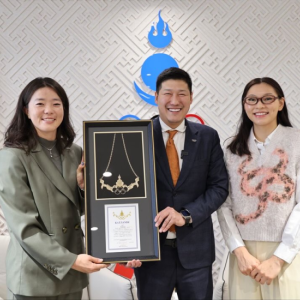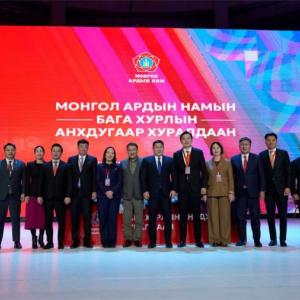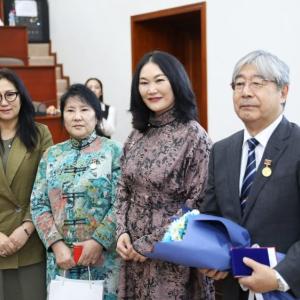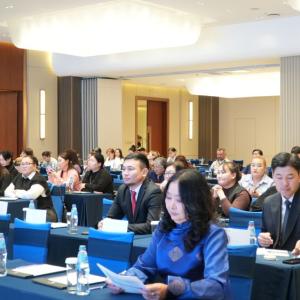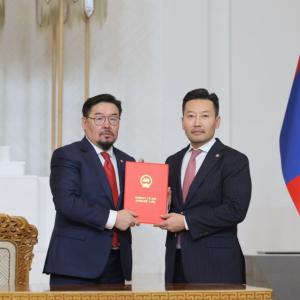Study explores Mongolia-Japan trade expansion opportunities
PoliticsUlaanbaatar /MONTSAME/. On February 21, a seminar was held at the National Chamber of Commerce and Industry to discuss the expansion of Mongolia-Japan trade in connection with bilateral Economic Partnership Agreement taking effect.
Mitsuaki Hoshino, Director of Northeast Asian Division at the Japanese Ministry of Economy, Trade and Industry addressed the meeting and said, “In recent years, high level meetings have been frequently held between Japan and Mongolia, and I think, it shows the depth of bilateral relationship and cooperation”.
The Ministry of Economy, Trade and Industry of Japan in cooperation with the Embassy of Japan in Mongolia has conducted a study, assessing three products – cashmere, sea buckthorn and dairy products which were considered to have the highest export potential. The study aimed to continually expand bilateral trade with not only minerals but other products, and explore how conventional agriculture can be developed in Mongolia and Japan.
The study was launched on October 12, 2016. Engaging 13 public and corresponding organizations, 17 private sector companies and 3 specialists, the study unveils the current state of Mongolian cashmere, sea buckthorn and dairy products industries, and challenges in exporting the products to Japan.
The study identified some solutions for successful export of cashmere such as improving quality control, production control and monitoring skills, launching a brand suitable for customer demand, ensuring stability and information on all procedures until the product is ready for use and learning marketing know-how in Japan.
The study also found three forms in which Mongolian sea buckthorn can be exported to Japan which are raw material, oil and oil powder.
The current state of Mongolian dairy industry was assessed by the study which concluded that although the nutrient quality of Mongolian milk is high, all-year stable supply is difficult because of the shortness of dairy season which is from July to September.
Generally, the study concluded with certain recommendations which include improving quality control, enhancing workforce capacity, consistently participating in expositions, business meetings and business matching, consistently updating on the activities of Mongolian companies and introducing a management to realize Japanese marketing strategies.
source: ikon.mn
 Ulaanbaatar
Ulaanbaatar





